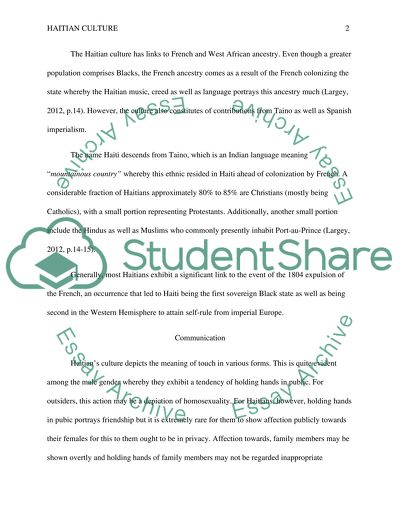Cite this document
(“Haitian Culture Assignment Example | Topics and Well Written Essays - 1250 words”, n.d.)
Retrieved from https://studentshare.org/nursing/1674438-haitian-culture
Retrieved from https://studentshare.org/nursing/1674438-haitian-culture
(Haitian Culture Assignment Example | Topics and Well Written Essays - 1250 Words)
https://studentshare.org/nursing/1674438-haitian-culture.
https://studentshare.org/nursing/1674438-haitian-culture.
“Haitian Culture Assignment Example | Topics and Well Written Essays - 1250 Words”, n.d. https://studentshare.org/nursing/1674438-haitian-culture.


